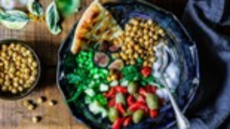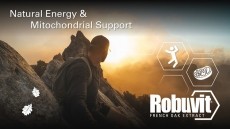EFSA backs energy drink ingredients
While EFSA had determined in the past that these ingredients possessed no safety concerns, this was not done at levels that are commonly found in many energy drinks.
In a review conducted after European Commission prompting, EFSA’s Scientific Panel on Food Additives and Nutrient Sources added to Food (ANS) found no safety issues existed at average usage levels of 0.5 cans per day, based on 2003 data from the EFSA’s forerunner, the Scientific Committee on Food (SCF).
No safety issues were raised even at a 95th percentile upper limit of 1.4 cans consumed per day.
This was based on average dosage of 4000mg per litre of taurine and 2400mg/L of D-glucurono-γ-lactone, in a standard 250ml slimline can. For a 60kg person this would equate to 500mg of taurine and 300mg of D-glucurono-γ-lactone for average consumption and 1400mg of taurine and 840mg D-glucurono-γ-lactone for heavy users.
The ANS made the point that the review validated the safety of the two ingredients that are known to possess stimulant properties, but did not evaluate the safety of energy drinks, per se.
The 2003 SCF data noted three cans per day as acute consumption with extreme examples of consumption in the range of 8-12 cans.
Subsequent reports have noted acute adverse events including deaths when energy drinks are consumed at this level. But the Panel posited there was little evidence linking these effects with taurine consumption and highlighted a study that showed they may be more closely linked to high caffeine consumption.
Taurine
A new rat study highlighted the fact that taurine exposure did not increase taurine levels in the brain. Previous toxicological studies did not reveal any indication for a genotoxic, teratogenic or carcinogenic potential of taurine.
ANS found a no observable adverse effect level (NOAEL) level of 1000mg was respectively 120-fold higher and 43-fold higher than the average and 95th percentile exposure from energy drinks alaone.
“Given that taurine is a natural body constituent, the Panel concludes that these margins of safety are sufficiently large to conclude that exposure to taurine at the levels mentioned above is not of safety concern.”
D-glucurono-γ-lactone
A similar NOAEL of 1000mg was seen in a rat study using D-glucurono-γ-lactone.
But the ANS noted: “Toxicological studies on the genotoxic, teratogenic or carcinogenic potential of D-glucurono-γ-lactone were not available. However, D-glucurono-γ-lactone is a normal human metabolite formed from glucose and there are no structural alerts for mutagenicity or carcinogenicity.”
It added: “Furthermore, in the high dose 13-week rat studies there was no evidence of any effect on the gonads which might indicate the need for reproductive toxicity studies.”
In conclusion it stated, “that additive interactions between taurine and caffeine on diuretic effects are unlikely. Other interactions between taurine and caffeine were not investigated.”
Business Insights projected the European energy drinks market would grow from $3.77bn (€2.64bn) in 2006 to $4.69bn (€3.29bn) in 2011.
It’s one of the fastest growing beverage sectors and has seen brands like Red Bull, Shark and Fuel become major-selling brands in Europe and elsewhere.












